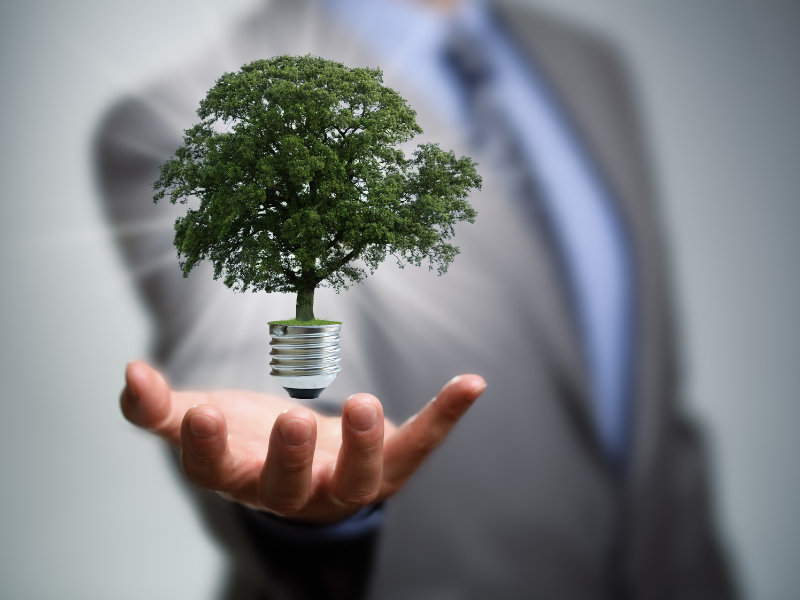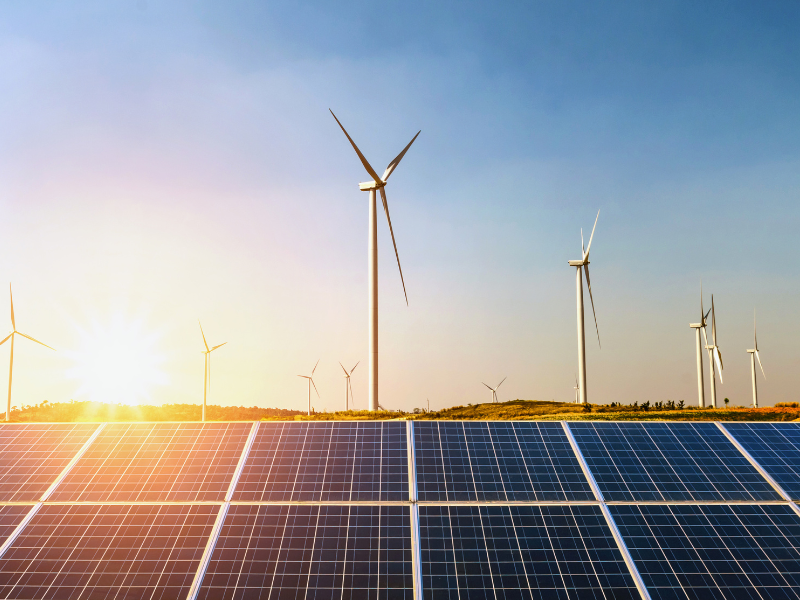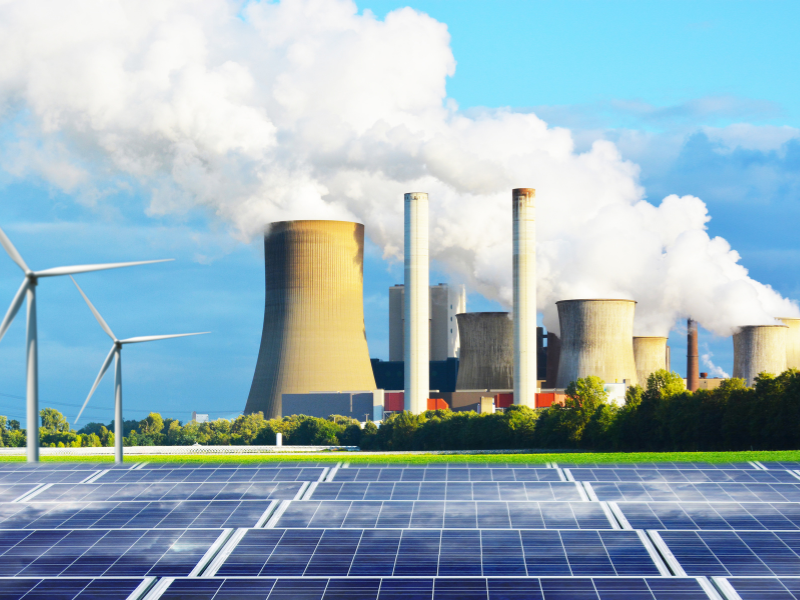Introduction
Clean energy companies are at the forefront of the global shift towards sustainable and renewable energy sources. As the urgency to combat climate change continues to grow, these companies play a vital role in developing and promoting clean energy solutions. In this article, we will explore the world of clean energy companies, their benefits, different types, and their impact on the environment and society. We will also discuss the challenges they face, government support, investments, and the future of clean energy companies.
What are Clean Energy Companies?

Clean energy companies are organizations that focus on producing and providing clean and renewable energy solutions. These companies are dedicated to reducing dependence on fossil fuels and mitigating the harmful effects of traditional energy sources on the environment. They develop technologies and innovations that harness the power of renewable resources such as solar, wind, hydro, geothermal, and biomass energy.
Benefits of Clean Energy Companies

Clean energy companies offer various benefits that contribute to a sustainable future. Here are some key advantages:
- Reduction of greenhouse gas emissions: Clean energy companies significantly reduce the emission of carbon dioxide and other harmful pollutants, helping combat climate change.
- Renewable and abundant energy sources: By harnessing renewable resources, clean energy companies provide access to abundant and reliable energy sources that can be replenished naturally.
- Energy independence and security: Clean energy diversifies the energy mix, reducing reliance on fossil fuel imports and increasing energy security.
- Job creation and economic growth: Clean energy companies create employment opportunities and contribute to economic growth in the renewable energy sector.
- Cost-effectiveness: With advancements in technology, clean energy solutions are becoming more affordable and cost-competitive compared to traditional energy sources.
- Environmental protection: Clean energy companies prioritize the conservation of natural resources and ecosystems by minimizing ecological impacts.
Types of Clean Energy Companies

Clean energy companies encompass various sectors and technologies. Here are some broad categories of clean energy companies:
- Solar energy companies: These companies specialize in harnessing the power of sunlight through photovoltaic cells or solar thermal systems to generate electricity and heat.
- Wind energy companies: Wind energy companies focus on utilizing wind turbines to convert wind power into usable electricity.
- Hydroelectric power companies: These companies generate electricity by harnessing the energy of flowing water through dams, rivers, or tidal currents.
- Geothermal energy companies: Geothermal energy companies tap into the heat stored within the Earth’s crust to produce electricity or provide heating and cooling solutions.
- Biomass energy companies: Biomass energy companies convert organic materials such as plants, agricultural waste, or wood pellets into bioenergy, including electricity, heat, and biofuels.
Popular Clean Energy Companies

Clean energy companies have gained significant traction worldwide. Here are some renowned clean energy companies:
- Tesla: Known for its electric vehicles, Tesla is also involved in clean energy initiatives, including the production of solar panels and energy storage solutions.
- Vestas: Vestas is a leading wind turbine manufacturer and one of the largest wind energy companies globally.
- Enphase Energy: Enphase Energy provides advanced solar energy solutions, including microinverters and energy management systems.
- First Solar: First Solar is a prominent solar energy company that manufactures and deploys solar panels and develops large-scale solar power projects.
- Orsted: Orsted, formerly known as Dong Energy, is a Danish renewable energy company primarily focused on offshore wind farms.
How to Choose a Clean Energy Company
Selecting the right clean energy company is crucial to meet your energy needs sustainably. Consider the following factors when choosing a clean energy company:
- Reputation and experience: Research the company’s track record, customer reviews, and industry reputation to ensure reliability and quality service.
- Technology and innovation: Look for companies that prioritize research and development to ensure they are at the forefront of clean energy advancements.
- Certifications and standards: Check if the company adheres to international standards and certifications relevant to clean energy production.
- Pricing and contracts: Compare pricing structures, contract terms, and incentives to assess the feasibility and affordability of their clean energy solutions.
- Customer support: Evaluate the company’s customer service and responsiveness to address any concerns or issues promptly.
The Future of Clean Energy Companies
The future of clean energy companies is promising as the global transition towards cleaner and more sustainable energy sources accelerates. Here are some key trends shaping the future of clean energy companies:
- Increased investments: Governments, businesses, and individuals are recognizing the importance of clean energy and investing in its development and deployment.
- Technological advancements: Rapid advancements in energy storage, smart grid systems, and innovative clean energy technologies are driving the growth of clean energy companies.
- Global collaborations: International collaborations and partnerships are fostering knowledge sharing, research, and development of clean energy solutions.
- Policy and regulatory support: Governments worldwide are implementing policies, incentives, and regulations to promote the growth of clean energy companies.
- Energy democratization: Clean energy companies are enabling individuals and communities to generate their own renewable energy, fostering energy independence and democratization.
- Electrification of transportation: Clean energy companies are at the forefront of the electrification of transportation, revolutionizing the automotive industry.
Challenges Faced by Clean Energy Companies
While clean energy companies play a crucial role in the global transition to sustainable energy, they face certain challenges that hinder their growth and adoption. Here are some common challenges:
- High initial costs: Clean energy technologies often require significant upfront investments, making it challenging for companies to compete with traditional energy sources.
- Intermittency of renewable sources: Some clean energy sources, such as solar and wind, are intermittent and rely on weather conditions, necessitating effective energy storage solutions.
- Limited infrastructure: Developing the necessary infrastructure, such as transmission lines or charging stations, poses challenges for clean energy companies.
- Regulatory barriers: Complex regulations and bureaucratic processes can hinder the development and deployment of clean energy solutions.
- Perception and misinformation: Negative perceptions and misinformation about clean energy technologies can create barriers to adoption and public support.
- Market competition: Clean energy companies face competition from well-established traditional energy companies, which may have financial and political advantages.
Investments in Clean Energy Companies
Investments in clean energy companies have been steadily increasing, driven by growing awareness of climate change and the advantages of clean energy solutions. Here are some types of investments in clean energy companies:
- Venture capital: Venture capital firms invest in promising clean energy startups and scale-ups in exchange for partial ownership or equity.
- Private equity: Private equity firms invest in established clean energy companies to support their growth and expansion.
- Project finance: Project finance involves providing funds for specific clean energy projects, such as solar farms or wind power plants, with expected returns based on project success.
- Public markets: Clean energy companies can also raise funds by going public and offering shares of their company on the stock market.
Government Support for Clean Energy Companies
Governments worldwide play a vital role in supporting clean energy companies through various policies, incentives, and regulations. Here are some ways governments support clean energy companies:
- Renewable energy targets: Governments set targets for the percentage of energy that must come from renewable sources, encouraging the growth of clean energy companies.
- Subsidies and tax incentives: Governments provide financial support, tax benefits, and incentives for clean energy companies to make renewable energy more affordable and competitive.
- Feed-in tariffs: Feed-in tariffs guarantee a fixed payment rate for clean energy producers, offering long-term financial stability and encouraging investments.
- Research and development funding: Governments allocate funding for research and development initiatives in clean energy technologies to drive innovation and advancements.
- Carbon pricing and emissions trading systems: Carbon pricing mechanisms, such as carbon taxes or emissions trading systems, create a financial incentive for clean energy companies to reduce emissions.
Clean Energy Companies and the Environment
Clean energy companies prioritize environmental protection and sustainability. By reducing greenhouse gas emissions and minimizing ecological impacts, they contribute to a healthier planet. Here are some ways clean energy companies benefit the environment:
- Reduced carbon footprint: Clean energy companies significantly reduce carbon dioxide and other greenhouse gas emissions, mitigating the adverse effects of climate change.
- Preservation of natural resources: Renewable energy sources used by clean energy companies are abundant and do not deplete natural resources like fossil fuels.
- Minimized air and water pollution: Clean energy technologies produce minimal or no air and water pollution, reducing the impact on human health and ecosystems.
- Biodiversity conservation: Clean energy projects strive to minimize disruption to natural habitats and ecosystems, safeguarding biodiversity.
Clean Energy Companies and Job Creation
Clean energy companies generate employment opportunities and contribute to economic growth. As the renewable energy sector expands, it creates a wide range of jobs across various domains. Here are some examples:
- Design and installation: Clean energy companies require professionals for designing and installing solar panels, wind turbines, and other clean energy systems.
- Research and development: Advancements in clean energy technologies necessitate researchers, engineers, and scientists to innovate and improve existing solutions.
- Maintenance and operations: Clean energy systems require regular maintenance and monitoring, creating jobs in operations and maintenance.
- Manufacturing and supply chain: Clean energy companies rely on manufacturing facilities and supply chains for producing and distributing clean energy technologies.
Clean Energy Companies and Social Impact
Clean energy companies have a significant social impact beyond environmental benefits. Here are some ways clean energy companies positively impact society:
- Energy access: Clean energy companies provide access to electricity and clean cooking solutions to communities without reliable access to energy.
- Energy affordability: With falling prices and innovative financing models, clean energy companies are making renewable energy more affordable and accessible to people at all income levels.
- Health benefits: The transition to clean energy reduces air pollution, improving public health and reducing healthcare costs associated with respiratory and cardiovascular diseases.
- Community development: Clean energy projects often involve collaboration with local communities, leading to job creation, infrastructure development, and capacity building.
Clean Energy Companies vs. Traditional Energy Companies
Clean energy companies and traditional energy companies differ significantly in their approaches and impacts on the environment. Here are some key differences:
- Carbon emissions: Clean energy companies prioritize reducing carbon emissions and offer solutions that do not contribute to climate change, while traditional energy companies heavily rely on fossil fuels and emit carbon dioxide.
- Renewable vs. non-renewable resources: Clean energy companies harness renewable resources that are naturally replenished, whereas traditional energy companies rely on finite fossil fuel reserves.
- Local pollution: Traditional energy companies often release air and water pollutants during fossil fuel extraction, transportation, and combustion, while clean energy companies have minimal or no local pollution.
- Price stability: Clean energy companies provide more price stability as renewable energy sources have little to no fuel costs, unlike traditional energy companies that are susceptible to fluctuations in fossil fuel prices.
Clean Energy Companies and Renewable Energy Sources
Clean energy companies are closely associated with renewable energy sources. Here are some popular renewable energy sources used by these companies:
- Solar energy: Clean energy companies harness the power of sunlight through photovoltaic cells or solar thermal systems to generate electricity and heat.
- Wind energy: Wind energy companies utilize wind turbines to convert wind power into electricity, an abundant and renewable resource.
- Hydroelectric power: Clean energy companies tap into the energy of flowing water through dams or rivers to generate electricity, a reliable and renewable source.
- Geothermal energy: Geothermal energy companies harness the natural heat stored within the Earth’s crust to produce electricity or provide heating and cooling solutions.
- Biomass energy: Clean energy companies convert organic materials such as plants, agricultural waste, or wood pellets into bioenergy, including electricity, heat, and biofuels.
Clean Energy Companies and Energy Efficiency
Clean energy companies play a crucial role in promoting energy efficiency. Here’s how they contribute to energy conservation:
- Energy-efficient technologies: Clean energy companies develop and promote energy-efficient technologies, appliances, and systems that reduce energy consumption without compromising performance.
- Smart grid systems: Clean energy companies integrate smart grid systems that enable efficient electricity generation, distribution, and consumption, optimizing energy use.
- Building design and retrofitting: Clean energy companies focus on designing and retrofitting buildings with energy-efficient features, insulation, and renewable energy systems to minimize energy wastage.
- Demand response programs: Clean energy companies facilitate demand response programs that encourage consumers to shift their energy use to off-peak hours, reducing strain on the grid.
Clean Energy Companies and Innovative Technologies
Clean energy companies drive innovation in the renewable energy sector. Here are some innovative technologies they develop and deploy:
- Energy storage systems: Clean energy companies develop advanced energy storage solutions, such as lithium-ion batteries, flywheels, and pumped hydro storage, to address the intermittency of renewable energy sources.
- Power-to-X technologies: Clean energy companies explore power-to-X technologies, which convert surplus renewable electricity into other forms of energy, such as hydrogen or synthetic fuels, for various applications.
- Microgrids and decentralized energy systems: Clean energy companies deploy microgrids and decentralized energy systems that enable communities to generate and consume their own renewable energy, enhancing energy resilience and independence.
- Offshore wind farms: Clean energy companies are at the forefront of building offshore wind farms that harness the stronger and more consistent winds over the ocean for electricity generation.
- Floating solar farms: Clean energy companies are developing innovative floating solar farms that utilize bodies of water for solar panel installation, maximizing land use and improving energy generation efficiency.
The Role of Clean Energy Companies in Combating Climate Change
Clean energy companies play a pivotal role in combating climate change. Here’s how they contribute to reducing greenhouse gas emissions and mitigating the effects of climate change:
- Renewable energy transition: Clean energy companies accelerate the transition from fossil fuel-based energy sources to renewable energy, significantly reducing carbon emissions.
- Innovation in cleantech: Clean energy companies drive innovation in clean technologies, such as solar panels, wind turbines, and energy storage, to make them more efficient, affordable, and accessible.
- Advocacy and awareness: Clean energy companies advocate for sustainable energy practices, raise awareness about climate change, and educate communities on the benefits of clean energy.
- Collaboration and partnerships: Clean energy companies collaborate with governments, businesses, and organizations to develop sustainable energy solutions and drive policy changes.
- Carbon offset projects: Clean energy companies invest in carbon offset projects, such as reforestation, to sequester carbon dioxide and contribute to a carbon-neutral future.
Clean Energy Companies and Corporate Social Responsibility
Clean energy companies prioritize corporate social responsibility (CSR) by integrating environmental and social considerations into their business practices. Here’s how they demonstrate CSR:
- Environmental conservation: Clean energy companies implement measures to minimize their environmental impact, conserve resources, and reduce emissions.
- Ethical supply chain: Clean energy companies ensure their supply chains adhere to ethical and sustainable practices, promoting fair labor conditions and responsible sourcing.
- Community engagement: Clean energy companies engage with local communities, fostering dialogue, supporting community projects, and addressing concerns related to clean energy installations.
- Transparent reporting: Clean energy companies provide transparent reporting on their sustainability initiatives, including environmental performance, social impact, and governance practices.
Clean Energy Companies and the Transition to a Sustainable Future
Clean energy companies are at the forefront of the global transition to a sustainable future. Here’s how they contribute to achieving a sustainable and resilient world:
- Decentralized energy systems: Clean energy companies enable decentralized energy systems that reduce reliance on centralized fossil fuel-based power plants and enhance energy resilience.
- Electrification of transportation: Clean energy companies drive the electrification of transportation by promoting electric vehicles and expanding charging infrastructure, reducing dependence on fossil fuel-powered vehicles.
- Integration of smart technologies: Clean energy companies integrate smart technologies, such as smart grids, automated controls, and data analytics, to optimize energy generation, consumption, and distribution.
- Circular economy principles: Clean energy companies embrace circular economy principles by prioritizing recycling, reusing, and repurposing materials and components within their operations.
- Collaborative approach: Clean energy companies collaborate with stakeholders across industries, governments, and communities to foster a collective effort towards a sustainable future.
Frequently Asked Questions
Q: Are clean energy companies only focused on electricity generation?
Clean energy companies are primarily associated with electricity generation. However, they also focus on other areas such as heating, cooling, and transportation to reduce greenhouse gas emissions and promote sustainable practices.
Q: How do clean energy companies impact the economy?
Clean energy companies contribute to the economy by creating employment opportunities, attracting investments, and driving economic growth in the renewable energy sector. They also reduce reliance on expensive fossil fuel imports, enhancing energy security and reducing trade deficits.
Q: Are clean energy solutions expensive for consumers?
While the initial costs of clean energy solutions may be higher, advancements in technology and economies of scale have significantly reduced the prices. Many governments and clean energy companies offer incentives and financing options to make clean energy solutions more affordable for consumers.
Q: How can individuals support clean energy companies?
Individuals can support clean energy companies by opting for clean energy solutions for their homes and vehicles, advocating for renewable energy policies, and investing in clean energy companies or funds that prioritize sustainability.
Conclusion
Clean energy companies play a pivotal role in driving the global transition to sustainable and renewable energy sources. With their focus on reducing carbon emissions, harnessing renewable resources, and promoting innovation, these companies contribute to a cleaner and more resilient future.
By choosing clean energy companies, supporting government initiatives, and embracing energy-efficient practices, individuals, communities, and businesses can actively participate in the global movement towards a sustainable world. The collective efforts of clean energy companies and stakeholders from various sectors are crucial in addressing climate change and creating a better future for generations to come.




